
Debrief 17: Being a Great Leader
Reviewing some of the things that caught my eye over the past week or so on Instagram & the internet.
(more…)
Reviewing some of the things that caught my eye over the past week or so on Instagram & the internet.
(more…)
25-20-15-10-5
Devil Press w/2xDB
*Between Each Round*
12x DB Deadlifts w/2xDB
12x Hang Clean & Jerk w/2xDB
RX = 50#/30#
FINISHER
800m Run
1 Mlle Run
50x Thrusters 45#/35#
25x Push-ups
5x Rounds
200m Run
10x Deadlift
5x Hang Power Clean
5x Push-Press
RX = 115#/95#
FINISHER
4x Rounds
20x Sit-ups
10x 2 Count Mountain Climbers
1:00 Plank
10x V-ups
5x Rounds
5x DB Renegade Rows
5x Push-Ups
10x DB Single Arm Thrusters
5x Push-Ups
15x KB Goblet Squats
5x Push-Ups
20x KB Swings
5x Push-Ups
FINISHER
3x Rounds
8x 1xDB Overhead Hold Lunges (R)
8x DB Facing Burpees
8x 1xDB Overhead Hold Lunges (L)
8x V-ups
12:00 EMOM
Min 1: 90x Jump Rope Singles
Min 2: 20x Sit-ups
Min 3: 10x Burpees
2:00 Rest
12:00 EMOM
Min 1: 90x Jump Rope Singles
Min 2: 10x Push-ups
Min 3: 10x V-ups
FINISHER:
3:00 Plank
Active Recovery
~1 Hour Active Recovery – Hike, Jog, Row, Bike, Swim

What is this term “Gaslighting”? How it is utilized and ways we can deal with it as a warrior should. Then we respond to a listener who posted back on the article and subject who had a different POV on it.
This week joined by co-host: Aaron “Grizz” Griswold.
(more…)
‘PUBG’
EMOM for As Long As Possible
1 Double-DB Devil Press
1 Double-DB Clean & Jerk
1 Single-arm-DB Snatch
*Add 1 rep to each movement every minute(1-1-1 then 2-2-2 then 3-3-3 etc…)
**DB = #AHAP
FINISHER
4x Rounds
20x Sit-ups
10x 2 Count Mountain Climbers
1:00 Plank
10x V-ups
‘THE HULK’
12:00 AMRAP
5x Front Squats 135#/95#
7x Box Jumps 30″/24″
10x KBS 75#/55#
FINISHER
800m Run/Jog/Walk
STRENGTH
Tempo Goblet Squats 5×5
3 sec down, 3 sec hold, fast up
Go as heavy as you can
WORKOUT
10-9-8-7-6-5-4-3-2-1
Pull ups
Box-Jumps
Push-Press 95#/65#
Air Squats
Push-ups
“HELL’s LADDER”
25:00 CAP
100x Jump Rope
10x Burpees
100x Jump Rope
10x Burpees
15x Push-ups
100x Jump Rope
10x Burpees
15x Push-ups
50x Alt Lunges
100x Jump Rope
10x Burpees
15x Push-ups
50x Alt Lunges
50x Sit-ups
100x Jump Rope
10x Burpees
15x Push-ups
50x Alt Lunges
50x Sit-ups
75x Air Squats
50x Alt DB Snatch #AHAP
30x Burpees
2:00 Rest…
30x Burpees
50x Alt DB Snatch #AHAP
Active Recovery
~1 Hour Active Recovery – Hike, Jog, Row, Bike, Swim

The problems we face with moral distress and how to build and utilize resiliency to combat it.
(more…)
CAPTAIN AMERICA
5x Rounds
20x Plate Squats
10x Push-ups
20x High Knees – 1x Tuck-Jump every 10x
200m Run
10x Plate Sit-ups
20x Mountain Climbers
10x Plate Russian Twist
*Plate = 25#/10#
**L1 3 rounds, L2 5 rounds

BLACK WIDOW
15:00 AMRAP
10x Shadow Box: Front Kick + Punches (left+right+hook+uppercut)
10x Push-ups
10x 180 Squat Jumps
10x Burpees (W/O Push-up)
10x Mountain Climbers
10x Leg Throughs (All fours to single leg through)

WINTER SOLDIER
15:00 AMRAP
20x Goblet Squats (55#/35#)
200m Single Arm KB Farmer Carry
*Change Arms @ ~100m
**KB = AHAFP (*Coach's Choice)3:00 Rest Then
15:00 AMRAP
200m Run
20x Alternating “hand on” Plate Push-ups
200m Plate Carry
20x Ground To Overhead with Plate
*Plate = 45#/35#
WANDA VISION
5:00 AMRAP each set (3:00 rest between sets)
Set 1 “VISION”: 5x Box Jumps, 7x Toes-to-Bar (High Knees)
Set 2 “SCARLET WITCH”: 5x Goblet Squats (55#/35#), 7x Push-ups
Set 3 “AGATHA”: 5x Pull-ups, 7x Wall Balls (20#/12#)
*FINISHER*
4x Rounds
20x Russian Twists
10x V-ups
:30 Hollow Hold
:30 Plank
:30 Rest

THANOS
25:00 AMRAP
6x “Thanos Complex”
Power Clean + Push Press + Front Squat 115#/75#
**If not RX then use lowest weight you can handle out of 3 movements
1x 200m Single Arm KB Carry (75#/55#)
*Change Arms @ ~100m
6x Bar Facing Burpees

Active Recovery
~1 Hour Active Recovery – Hike, Jog, Row, Bike, Swim
Rest Day (opposite day to the AR day)

Reviewing some of the things that caught my eye over the past week or so on Instagram & the internet.
This week joined by co-host Aaron “Grizz” Griswold.

Reviewing some of the things that caught my eye over the past week or so on Instagram & the internet.
This week joined by co-host Aaron “Grizz” Griswold.

For Time
10x Burpees
20x Push-ups
10x Burpees
30x V-ups
20x Push-ups
10x Burpees
40x Lunges
30x V-ups
20x Push-ups
10x Burpees
50x Air Squats
40x Lunges
30x V-ups
20x Push-ups
10x Burpees
4x Rounds
10x Bicep Curls
10x Hammer Curls
10x Shoulder Pres
10x Front Squat
10x Thruster
2xDB’s #AHAP
Then…
3x 1:00 Wall Sit
Rest :30 between sets
3x 1:00 Plank
Rest :30 between sets
3×12 v-ups
Rest as needed between
3x Rounds
400m Run
21-15-9
Burpees
Goblet Squats #AHAP
Sit-ups
Then…
400m KB/DB ‘Suitcase’ Farmer Carry AHAP#
2:00 Rest
400m KB/DB ‘Suitcase’ Carry AHAP#
16-14-12-10-8-6-4
Sit Ups
Single Arm DB Devil Press #AHAP
*30x Double Unders after each round. (3:1 Singles)
8:00 AMRAP
8x Push-ups
2-4-6-8-10-… -> Air Squats
Then…
4x Rounds
10x Bicep Curls
10x Hammer Curls
10x Shoulder Press
10x Front Squat
10x Thruster
2xDB’s #AHAP
Active Recovery
~1 Hour Active Recovery – Hike, Jog, Row, Bike, Swim
Rest Day (opposite day to the AR day)
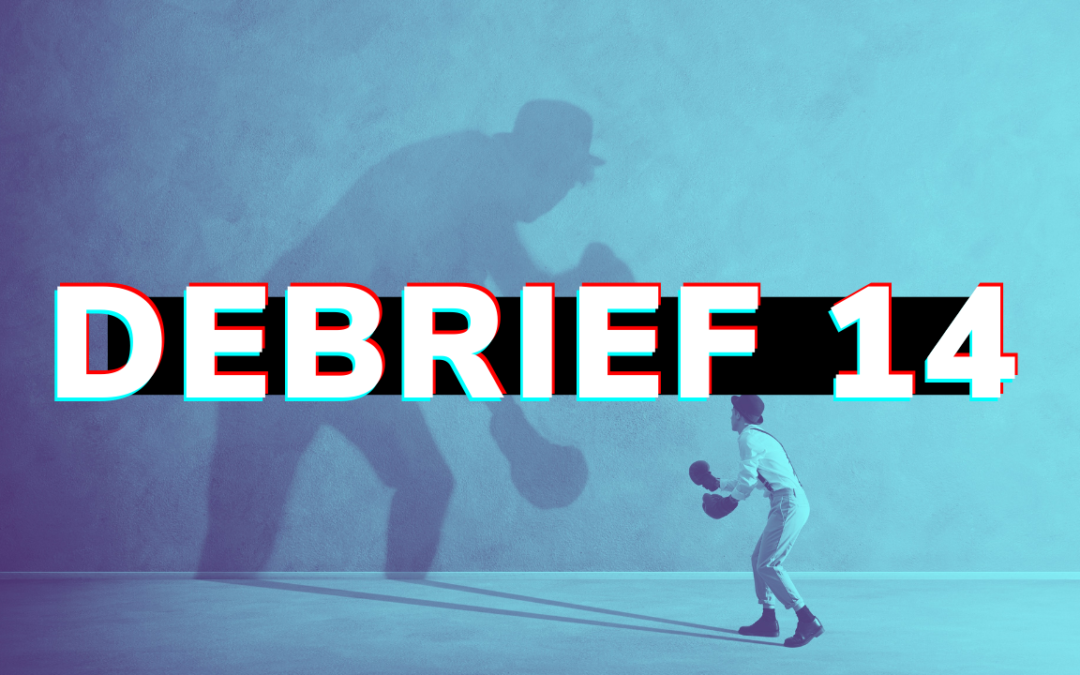
Reviewing some of the things that caught my eye over the past week or so on Instagram & the internet.
This week joined by co-host Heather Bauer
(more…)
15:00 AMRAP
10x Ground to OH w/Plate 35#/25#
10x Squats w/Plate 35#/25#
10x OH Press w/Plate 35#/25#
10x Burpee
Run 200m
**Try to do the first 3 “plate” movements unbroken and “back2back2back”
5:00 Rest “Minimum”
3 Sets Each of 1:00 / 1:00 Rest
Max Sit-ups
Max Push-ups
1:00 Plank
4x Rounds (30:00 CAP)
200m Run
25x RKBS #AHAP
20x Goblet Squats #AHAP
15x KB Lunges
10x Push-ups
5x Pull-ups
15:00 AMRAP
15x Burpees (alt = 10 push-ups + :30 plank)
15x Push Press
20x Russian Twist w/plate 25#/10#
*Choose a weight for the Push Press that will challenge you!
*A little heavier than normal so you might want to break the push press but won’t because you are a badass ?
~ Rest 3:00 min ~
4x Rounds
10 x 1 arm dumbbell high pull with 2 sec negative (right arm)
10x 1 arm dumbbell high pull with 2 sec negative (left arm)
:30 sec hold dumbbell overhead alt sides
1:00 Rest
*Choose a weight for the DB that will challenge you!
4x Rounds
6x Push-ups + DB/KB Deadlift
6x Lunges or 12x Air Squats
*Choose weight for the DB/KB that will challenge you!
~ Rest 5:00 min ~
4x rounds
200m Run
20x Ground to Overhead w/Plate
20x Lunges or Air Squats
The CrossFit Open Workout will be programmed for today
https://games.crossfit.com/open
Active Recovery
~1 Hour Active Recovery – Hike, Jog, Row, Bike, Swim
Rest Day (opposite day to the AR day)

Reviewing some of the things that caught my eye over the past week or so on Instagram & the internet.
This week joined by co-host Aaron “Grizz” Griswold.
(more…)
Alternating one-arm devil’s power snatch into push jerk
30x Per Side
20:00 AMRAP
5x Burpee Broad Jumps
10x Barbell Push-press 45/35
15x Push-Ups
20x Air Squats
25m Bear Crawl
200m Run
‘Helen’
3 Rounds for time of:
400m Run
21 Kettlebell Swings, 53# / 35#
12 Pull-ups (use band, or ring rows/inverted row)
5:00 AMRAP each set (3:00 rest between sets)
Set 1: 5x box jumps (24″/20″), 7x toes to bars
Set 2: 5x push-ups, 7x goblet squats (55#/35#)
Set 3: 5x pull-ups, 7x burpees
*Scale movements as needed: box jumps to step ups, pull-ups to ring rows.
The CrossFit Open Workout will be programmed for today
https://games.crossfit.com/open
Active Recovery
~1 Hour Active Recovery – Hike, Jog, Row, Bike, Swim
Rest Day (opposite day to the AR day)

Reviewing some of the things that caught my eye over the past week or so on Instagram & the internet.
This week joined by co-host Aaron “Grizz” Griswold.
(more…)
Atalanta
4x Rounds (~30:00 to complete)
400m Run
20x Hand Release Push-Up
20x Sit-Ups
2:00 Rest
*Greek huntress and an exceptional athlete. She was also a favorite of the goddess Artemis because of her survival instinct, impressive skills, courage and noble character. Atalanta was known for her equality to men when it came to hunting or athletic accomplishments.
8 Sets of Each Tabata (:20 work :10 rest)
Tabata 1: Ground to Overhead w/Plate
2:00 Rest
Tabata 2: Alt Legs V-up
2:00 Rest
Tabata 3: OH Plate Lunges
2:00 Rest
Tabata 4: Box Step-ups 20″
2:00 Rest
Tabata 5: Jump Rope Singles
STRENGTH
Thrusters 3-5-7-5-3
12:00 EMOM
2x DB’s #AHAP
4x Front Squat
6x Bent Over Rows
4x Push-ups
For Time
1 Mile Run
30x Clean & Jerks
15x Box Jumps OR 20x Box Step-ups
[30:00 Cap]
The CrossFit Open Workout will be programmed for today
https://games.crossfit.com/open
Active Recovery
~1 Hour Active Recovery – Hike, Jog, Row, Bike, Swim
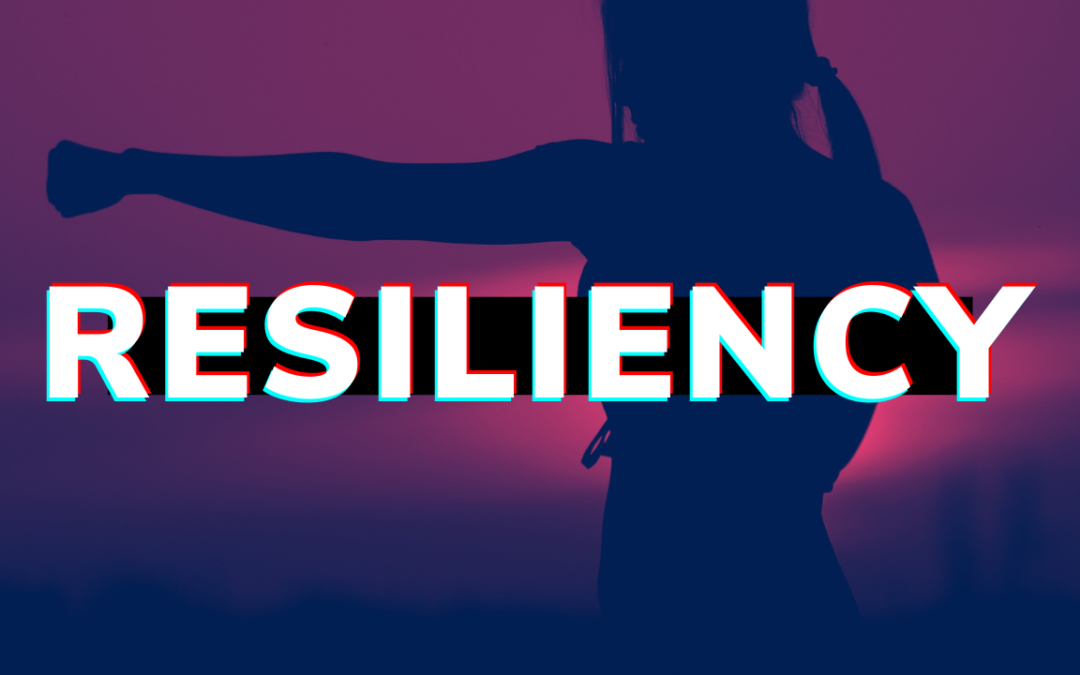
Discussing Resiliency and talking through the questions from our Warrior Mindset online chat about the same topic with special guest and fellow Martial Artist Heather Bauer.
(more…)
‘Grettel’
10x Rounds
3x Push Press (use 2xDBs or Barbell)
3x Push-ups
3x Burpees
FINISHER
2:00 Max Reps Sit-ups
2:00 Rest
2:00 Plank (do the best you can, accumulate the time in plank)
STRENGTH WORK FIRST
3-5-7-5-3
Thrusters 95#/65#
Scale accordingly
4x Rounds
200m Run/Walk
10x Single Arm ALT DB Snatch
10x V-ups / Sit-ups
8:00 AMRAP
5x Burpees
5x Deadlift
5x Push-Ups (Feet Elevated)
FINISHER
4x Rounds
20x Russian Twists
10x V-ups
:30 Hollow Hold
:30 Plank
:30 Rest
50-40-30-20-10
Jump Rope Singles (2:1)
Sit-Ups
*After each ODD round of “ANNIE” 50/30/10, complete 1 round of “KELLY”
**No additional work in the EVEN rounds.
1 Round of KELLY…
400m Run
30x Box Step Ups
20x Wall Balls
30:00 AMRAP
10x KB Deadlift #AHAP
10x Push-ups
10x Push Press 45#/35#
20x Air Squats
10x Jumping Squats
30x Farmer Carry 100m
Active Recovery
~1 Hour Active Recovery – Hike, Jog, Row, Bike, Swim
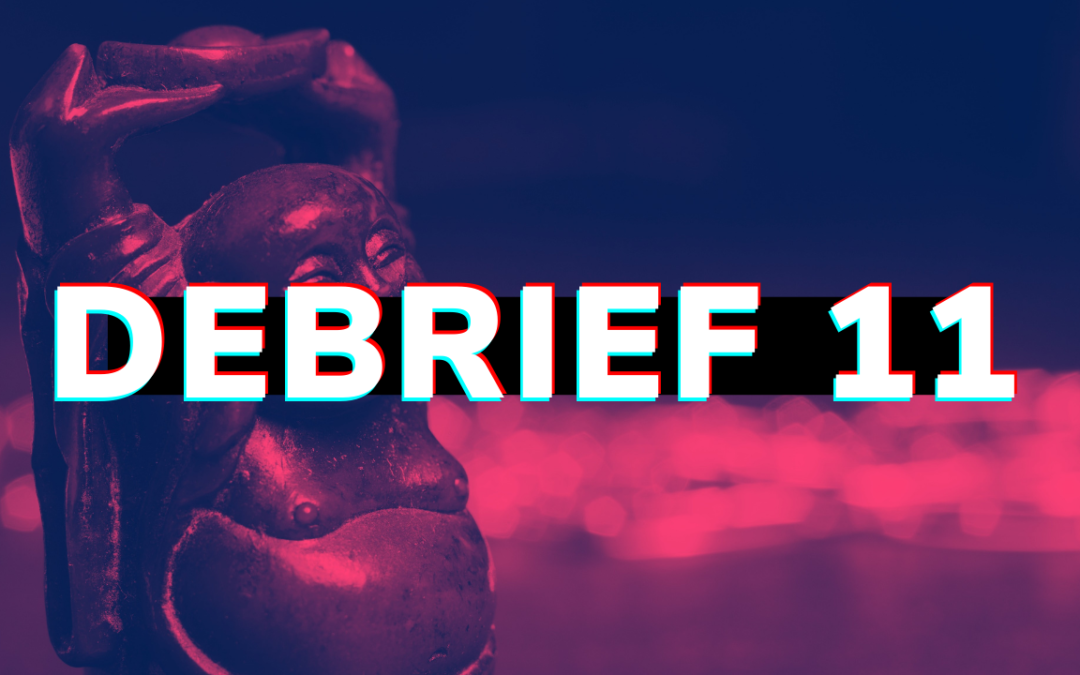
Reviewing some of the things that caught my eye over the past week or so on Instagram & the internet.
This week joined by co-host Aaron “Grizz” Griswold.
(more…)
20:00 AMRAP
20x Plate Squats (hold out in front)
10x Push-ups (hands on plate)
10x Squat Jumps (hands on plate when in down position)
10x Plate Sit-ups
10x Plate Russian Twist
20x Mountain Climbers (hands on plate)
*Plate = 25#/10#
**If you don’t have a plate, just do the same movements without one 🙂
FINISHER
3x 1:00 Wall Sit
Rest :30 between sets
3x 1:00 Plank
Rest :30 between sets
3×12 v-ups
Rest as needed between
20-16-12-8-4
DB Snatch #AHAP
Burpee Over the DB (scale: Burpee or Push-ups)
FINISHER
4x Rounds
10x Bicep Curls
10x Hammer Curls
10x Shoulder Pres
10x Front Squat
10x Thruster
2xDB’s #AHAP
5 Rounds for time:
DT
12 Deadlifts w/KB
9 Hang Power Cleans w/2xDB
6 Push Jerks w/2xDB
*Make the KB and DB’s a moderate weight.
FINISHER
Run 600-800m (moderate pace)
15:00 AMRAP
1x Burpee
2x Air Squat
2x Burpee
4x Air Squat
3x Burpee
8x Air Squat
etc…
12:00 EMOM
10x Goblet Squat + 5x Push-ups
**Every other minute do Air Squats instead of Goblet Squats
FINISHER
3×15 Ring Rows
3×10 Bent over Rows 2xDBs
3×10 Shoulder Press 2xDBs
~1 Hour Active Recovery – Hike, Jog, Row, Bike, Swim
~Rest Day~

~1 Hour Active Recovery – Hike, Jog, Row, Bike, Swim

‘Black Widow’
15:00 AMRAP
10x Shadow Box: Front Kick + Punches (left+right+hook+uppercut)
10x Push-ups
10x 180 Squat Jumps
10x Burpees (W/O Push-up)
10x Mountain Climbers
10x Leg Throughs (All fours to single leg through)
*https://youtu.be/dtVD2MPp9Ao
FINISHER
4x 10x DB Push Press
4x 10x RKBS #AHAP
3x 10x V-ups (or Sit-ups)


3x Rounds
400m Run or 1:30 of Jump Rope
21-15-9
Burpees
Air Squats
Sit-ups
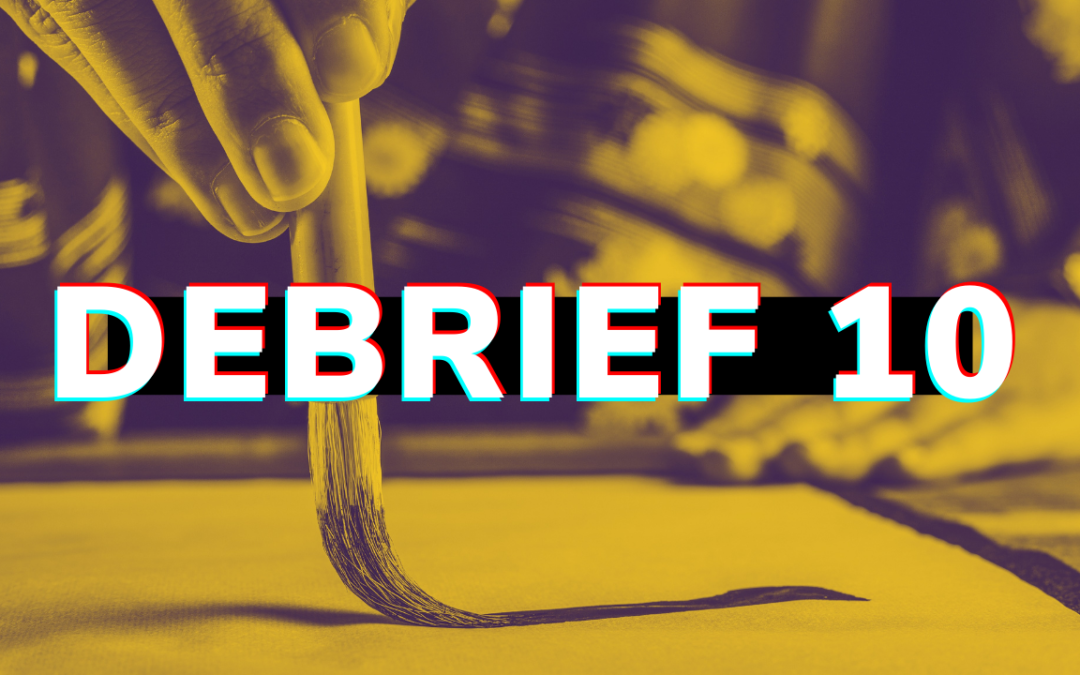
Reviewing some of the things that caught my eye over the past week or so on Instagram & the internet.
This week joined by co-host Aaron “Grizz” Griswold.
(more…)
5x Rounds
25x Sit-ups
20x Push-ups
10x Leg Raises
10x 4ct Supermans
10x 4ct Arm-haulers
FINISHER
1 Mile Run/Jog

For Time
Rnd 1:
10x Burpees
Rnd 2:
20x Push-ups
10x Burpees
Rnd 3:
30x V-ups
20x Push-ups
10x Burpees
Rnd 4:
40x Lunges
30x V-ups
20x Push-ups
10x Burpees
Rnd 5:
50x Air Squats
40x Lunges
30x V-ups
20x Push-ups
10x Burpees
FINISHER
21-18-15-12-9-6
Single Arm Bent Over Rows (left arm)
Single Arm Bent Over Rows (right arm)
Overhead Tricep Extensions (both arms)

~1 Hour Active Recovery – Hike, Jog, Row, Bike, Swim

Rest day…

~5:00 Cardio
then
~10:00 Mobility
‘FURIOSA’
LVL1 = 5x Rounds, LVL2 = 7x Rounds
20:00 CAP
20x Mountain Climbers (2x=1)
10x Push-ups
2x Raised Leg Push-ups
20x Left+Right Punches (Shadow boxing)
20x Air Squats (with your guard up)
10x Burpees
10x Alt Raised Leg Glute Bridges
10x Sit-ups


Reviewing some of the things that caught my eye over the past week or so on Instagram & the internet.
(more…)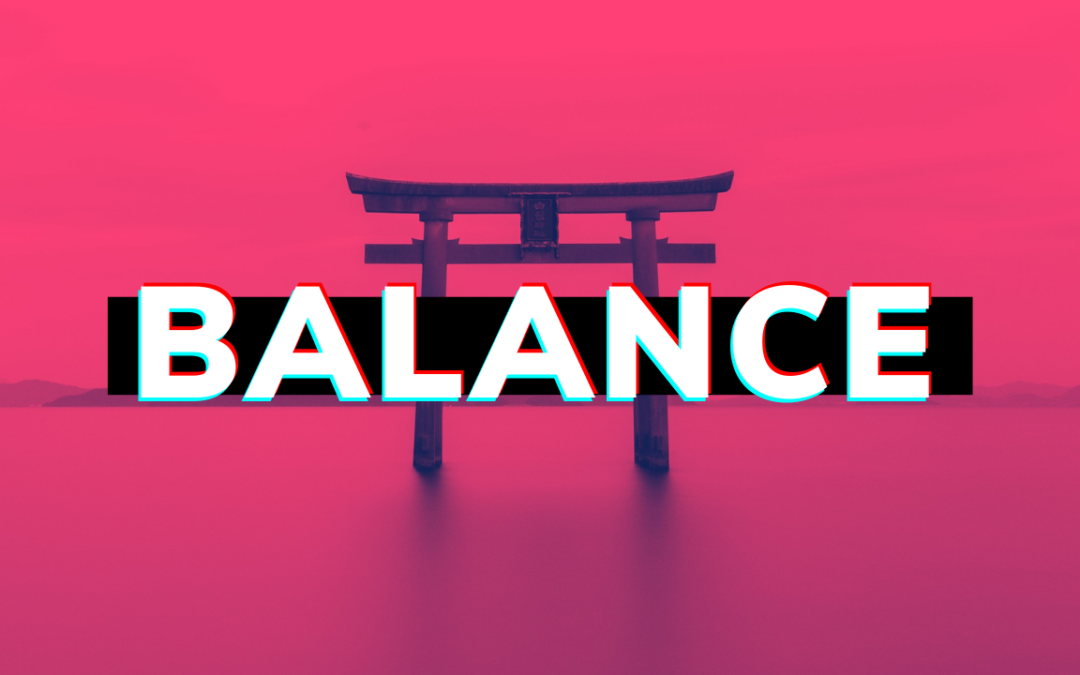
How do you find balance through flow state living as well as a discussion on Yan & Yang.
(more…)